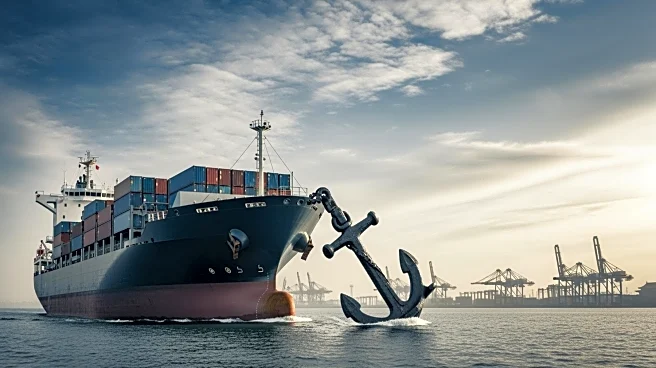What's Happening?
BIMCO, a major international shipping association, is developing a new clause to address the recently introduced 'Special Port Fees' by China. These fees, announced by the Chinese Ministry of Transport
on October 10, 2025, apply to ships that are US-built, flagged, owned, or operated by US entities. The fees were implemented on October 14, 2025, and are part of a broader trend of increasing geopolitical tensions and trade restrictions. The new fees are expected to impact US-related maritime operations significantly, as they add an additional cost burden to ships calling at Chinese ports. BIMCO's initiative aims to provide a standardized contractual response to these fees, helping shipping companies navigate the financial and operational challenges posed by the new regulations.
Why It's Important?
The introduction of these port fees is a significant development in the context of US-China trade relations, which have been marked by increasing tensions and trade barriers. The fees could lead to higher operational costs for US shipping companies, potentially affecting their competitiveness in the global market. This move by China may also prompt other countries to consider similar measures, further complicating international trade dynamics. The shipping industry, already dealing with the impacts of global trade disruptions, may face additional challenges in maintaining efficient and cost-effective operations. Stakeholders in the maritime sector, including shipping companies and trade associations, will need to adapt to these changes to mitigate potential financial impacts.
What's Next?
As BIMCO works on developing a standard clause, shipping companies will likely assess the financial implications of the new fees and adjust their operations accordingly. There may be increased lobbying efforts by industry groups to negotiate with Chinese authorities or seek diplomatic interventions to ease the financial burden. Additionally, companies might explore alternative routes or partnerships to minimize exposure to these fees. The broader geopolitical landscape will continue to influence trade policies, and stakeholders will need to remain vigilant and adaptable to further changes in international trade regulations.








